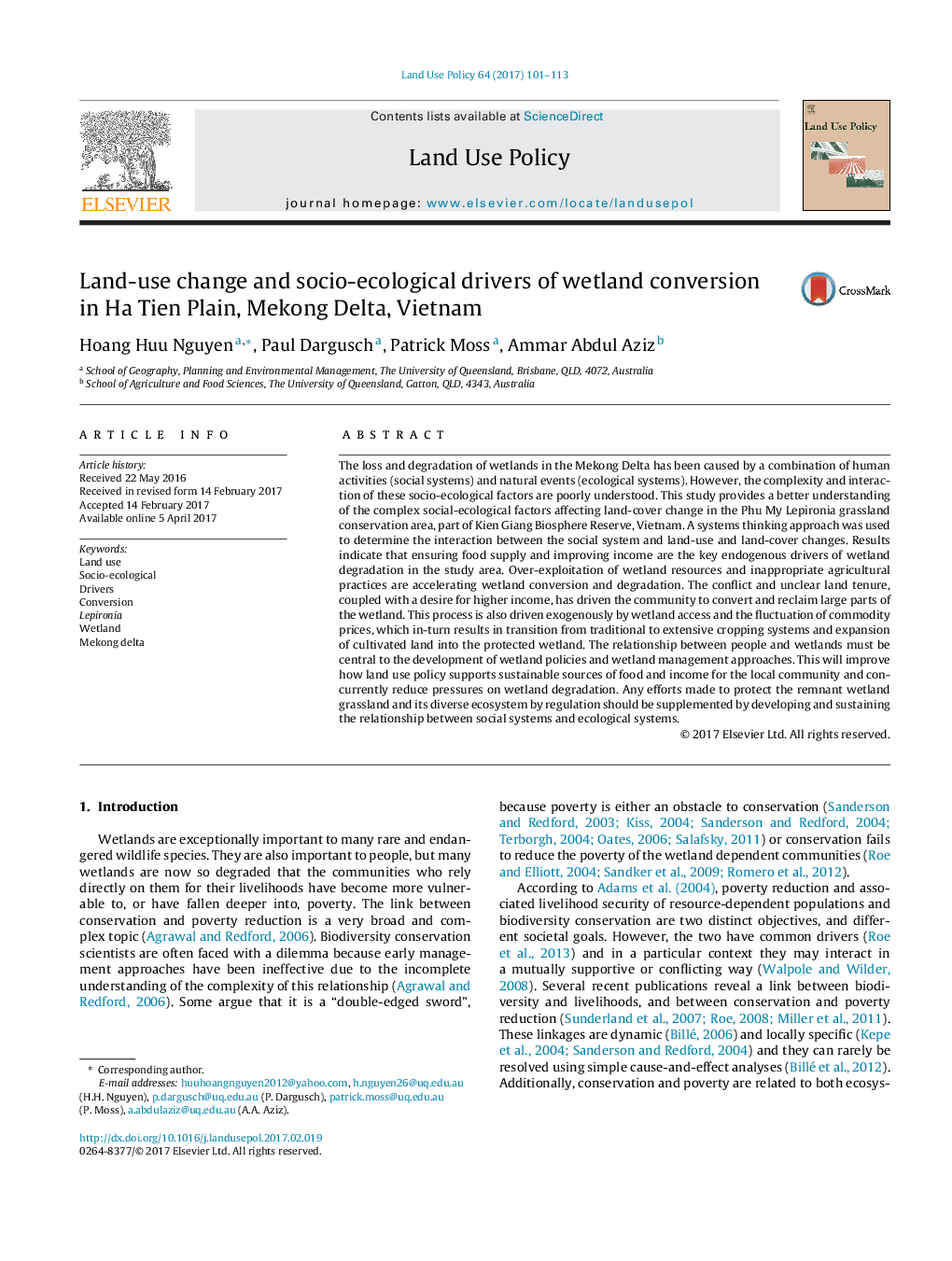| Article ID | Journal | Published Year | Pages | File Type |
|---|---|---|---|---|
| 6460801 | Land Use Policy | 2017 | 13 Pages |
The loss and degradation of wetlands in the Mekong Delta has been caused by a combination of human activities (social systems) and natural events (ecological systems). However, the complexity and interaction of these socio-ecological factors are poorly understood. This study provides a better understanding of the complex social-ecological factors affecting land-cover change in the Phu My Lepironia grassland conservation area, part of Kien Giang Biosphere Reserve, Vietnam. A systems thinking approach was used to determine the interaction between the social system and land-use and land-cover changes. Results indicate that ensuring food supply and improving income are the key endogenous drivers of wetland degradation in the study area. Over-exploitation of wetland resources and inappropriate agricultural practices are accelerating wetland conversion and degradation. The conflict and unclear land tenure, coupled with a desire for higher income, has driven the community to convert and reclaim large parts of the wetland. This process is also driven exogenously by wetland access and the fluctuation of commodity prices, which in-turn results in transition from traditional to extensive cropping systems and expansion of cultivated land into the protected wetland. The relationship between people and wetlands must be central to the development of wetland policies and wetland management approaches. This will improve how land use policy supports sustainable sources of food and income for the local community and concurrently reduce pressures on wetland degradation. Any efforts made to protect the remnant wetland grassland and its diverse ecosystem by regulation should be supplemented by developing and sustaining the relationship between social systems and ecological systems.
